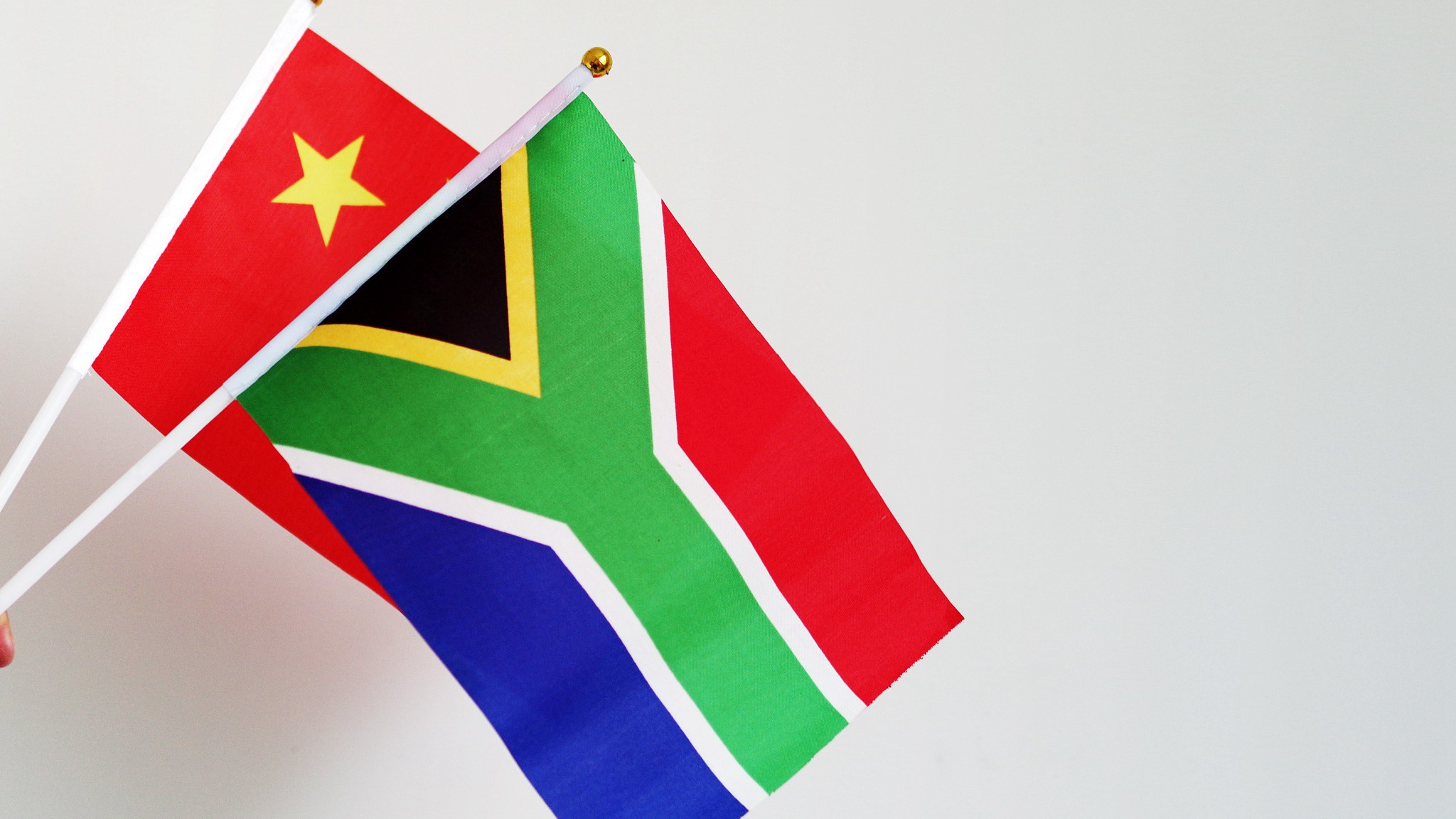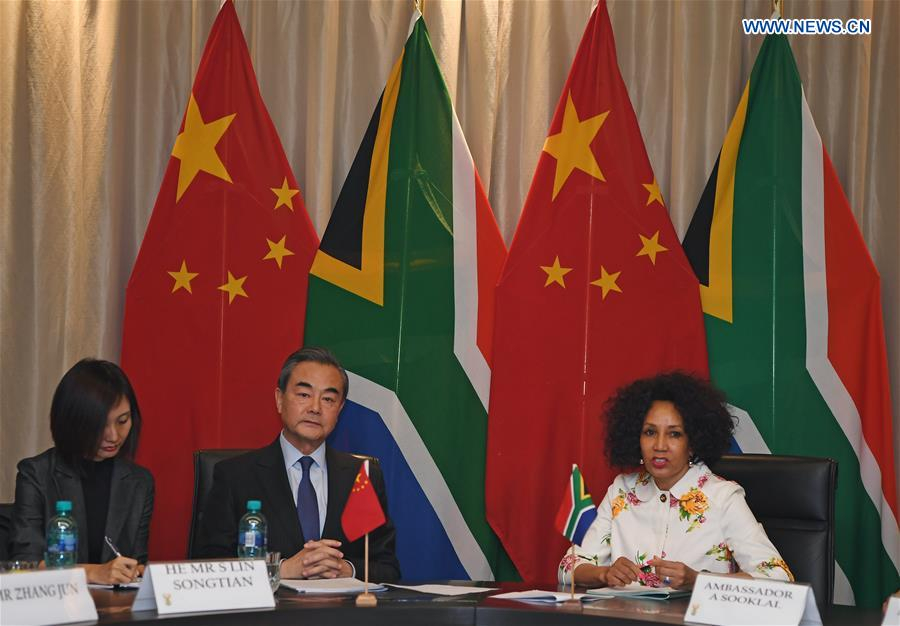
Opinions
14:59, 24-Jul-2018
Opinion: Beyond trade, South Africa-China relations can be even better
Updated
14:06, 27-Jul-2018
Carien du Plessis

Editor's note: Carien du Plessis is a Johannesburg-based freelance journalist who writes about Africa and South African politics and foreign relations. The article reflects the author's opinion, and not necessarily the views of CGTN.
Next to the M2 flyway that crosses Johannesburg’s high-rise CBD is a large, bright billboard urging shoppers to celebrate 20 years of China and South Africa relations – by visiting the China Mall.
It’s a large complex nearby, with shops stacked to the roof with made-in-China plastics, gadgets, and appliances. South Africans love it because it has almost everything they need, for cheap.
Shopping is also the first thing South Africans think of when asked about trade with China, but there’s more to it.
When former president Nelson Mandela, who would have turned 100 this year, broke ties with Taipei and re-established ties with Beijing at the end of 1997, it was both about politics and the economy.
China opposed apartheid and supported the liberation struggle, but also had a massive market of over a billion people.
Trade volumes between the two countries have increased more than 20-fold since 1997, to 39.17 billion US dollars in 2017.
South Africa has been China’s biggest trading partner in Africa for the past eight years, while China has been South Africa’s biggest partner for the past nine.
South African exports of wine, rooibos tea, apples, and beef to China are growing, while China has invested in manufacturing, processing, mining, finance, energy, tourism, commerce, trade and services in South Africa.

June 4, 2018: Chinese State Councilor and Foreign Minister Wang Yi (C) meets with South African Minister of International Relations and Cooperation Lindiwe Sisulu (R) in Pretoria, South Africa./ Xinhua News
June 4, 2018: Chinese State Councilor and Foreign Minister Wang Yi (C) meets with South African Minister of International Relations and Cooperation Lindiwe Sisulu (R) in Pretoria, South Africa./ Xinhua News
In addition, Chinese political education is valued to such an extent that Julius Malema promised to go study in China for a year or two to “cool down”.
The young leader started a new party, the Economic Freedom Fighters, before this could happen, but it didn’t stop his supporters calling him “Mao’lema”, after former Communist Party chairperson Mao Zedong, for his iconic leadership style.
After the emergence of Donald Trump as United States president in 2016, and his application of protectionist policies, South Africa has increasingly been looking towards China and the BRICS bloc, amongst others, to advance multilateralism. This will also be a prominent discussion point at the BRICS Summit this week [NOTE: 25-27July] in Johannesburg.
While Europe and the US are significant trading partners of South Africa too, China has a lot to offer.
Its energetic and pro-active ambassador in Pretoria, Lin Songtian, loves to emphasize the fact that tourism from China, with its vast market, could be an easy win for South Africa, but tourists would need to feel safe in a country with a high rate of violent crime.
Swift movement on economic development and trade should be balanced with cultural sensitivity and proper conversation, also with the ordinary people, on both sides. That way the relationship would not end up getting stuck at a mall.

SITEMAP
Copyright © 2018 CGTN. Beijing ICP prepared NO.16065310-3
Copyright © 2018 CGTN. Beijing ICP prepared NO.16065310-3